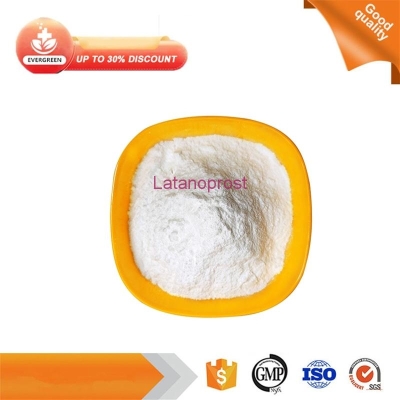-
Categories
-
Pharmaceutical Intermediates
-
Active Pharmaceutical Ingredients
-
Food Additives
- Industrial Coatings
- Agrochemicals
- Dyes and Pigments
- Surfactant
- Flavors and Fragrances
- Chemical Reagents
- Catalyst and Auxiliary
- Natural Products
- Inorganic Chemistry
-
Organic Chemistry
-
Biochemical Engineering
- Analytical Chemistry
- Cosmetic Ingredient
-
Pharmaceutical Intermediates
Promotion
ECHEMI Mall
Wholesale
Weekly Price
Exhibition
News
-
Trade Service
At present, the clinical improvement of HPRL caused by antipsychotics is mainly based on drug intervention, and there are mainly the following six intervention strategies: 1) combination of aripiprazole [6-8]; 2) switch to another antipsychotic drug (aripiprazole, clozapine, quintiopine) [9-17]; 3) Combination of dopamine agonists (cabergoline, bromocriptine, etc.
Recently, the team of Professor Yue Weihua of Peking University Sixth Hospital published a report in Translational Psychiatry entitled "Pharmacological treatment strategies for antipsychotic-induced hyperprolactinemia: a systematic review and network.
Single-arm trial meta-analyses were used to compare efficacy before and after treatment with intervention strategies, randomized controlled trials were used to compare differences in efficacy between intervention strategies and placebo, and reticular meta-analyses were used to compare differences in efficacy between different intervention strategies, and finally comprehensive conclusions were drawn
The results showed that switching to another antipsychotic drug (MD = -42.
Figure 2: Meta-analysis
Results showed that aripiprazole (MD = -60.
Finally, the authors assessed the safety of six intervention strategies, with a total of 15 studies and 844 participants
Conclusion and discussion, inspiration and prospects
In summary, hyperprolactinemia (HPRL) caused by antipsychotics can be intervened
(Photo courtesy of: Yue Weihua Laboratory)
About the Author (Swipe Up and Down to Read)
Yue Weihua, MD, researcher, professor, doctoral supervisor, deputy director of Peking University Sixth Hospital (Institute of Mental Health), deputy director of the National Clinical Research Center for Mental Disorders
.
He is the recipient of the National Outstanding Youth Science Foundation and the Outstanding Youth Science Fund, a Boya Distinguished Professor of Peking University, a researcher of the McGovern Institute in Beijing, and a "co-researcher" of the Beijing Center for Brain Science and Brain-like Research
.
He has successively received funding
from the National Natural Science Foundation of China (Youth/Face/Youqing/Jieqing), the National Key Research and Development Program (Special Project for Chronic Diseases), the Special Project of the National 863 Program, the Sub-project of the National 973 Program, the Sub-project of the "Twelfth Five-Year Plan" Science and Technology Program, and the Beijing Municipal Natural Science Foundation.
More than 100 papers published as corresponding or first author, representative academic papers published in Nature Genetics (2011, 2019), Molecular Psychiatry (2017), Lancet Psychiatry (2018), Cell Discovery (2021), Schizophrenia Bulletin (2022), Translational Psychiatry (2022) and other magazines
.
articles from previous issues [1] Nat Metab-Xiong Wei's research group elucidated new targets for alcohol and cannabis to synergistically lead to sports toxicity[2] PloS Genet-Xing Lingyan/Wu Liucheng/Sun Junjie collaborated to reveal a new mechanism for non-cellular autonomic degeneration of motor neurons in spinal muscular atrophy [3] Neuron-synaptic initiation protein to regulate ultrafast endocytosis [4] JNNP-Qiu Wei/ Yu Qingfen's team discovered the susceptibility gene of familial optic nerve myelitis spectrum disease [5] Nat Neurosci - breakthrough! Brain electrical stimulation can sustainably improve work and long-term memory in the elderly[6] Nat Methods—Zhang Yang's team released a common structural comparison algorithm for proteins/nucleic acids and their complexes: US-align[7] J Neuroinflammation Review - COVID-19 and cognitive disorders: neural invasion and blood-brain barrier dysfunction [8] CRPS review - Shen Guozhen's team reviews the research progress of optoelectronic artificial synaptic devices [9] Science | Evolutionary Atlas of Primates Lateral Prefrontal Cortex Molecules and Cell Levels [10] BMC Medicine-Song Huan/Suo Chen's team found that genetic susceptibility to mental illness is related to the risk of COVID-19 infection Recommended High-quality scientific research training course [1] R language clinical prediction biomedical statistics special training (October 15-16, Beijing Institute of Genetics and Developmental Biology, Chinese Academy of Sciences) Conference/Forum Preview [1] Preview | Neuromodulation and Brain-Computer Interface Conference (October 13-14, Beijing Time) Welcome to "Logical Neuroscience" [1] Talent Recruitment - "Logical Neuroscience" Active Article Interpretation/Writing Position (Network Part-time, Online Office)
References (swipe up and down to read)
1.
Melmed S, Casanueva FF, Hoffman AR, Kleinberg DL, Montori VM, Schlechte JA, Wass JA.
Diagnosis and treatment of hyperprolactinemia: an Endocrine Society clinical practice guideline.
J Clin Endocrinol Metab.
2011; 96:273-288.
2.
Lopez-Vicchi F, De Winne C, Brie B, Sorianello E, Ladyman SR, Becu-Villalobos D.
Metabolic functions of prolactin: Physiological and pathological aspects.
J Neuroendocrinol.
2020; 32:e12888.
3.
Inder WJ, Castle D.
Antipsychotic-induced hyperprolactinaemia.
Aust N Z J Psychiatry.
2011; 45:830-837.
4.
Bernichtein S, Touraine P, Goffin V.
New concepts in prolactin biology.
J Endocrinol.
2010; 206:1-11.
5.
Taipale H, Solmi M, Lähteenvuo M, Tanskanen A, Correll CU, Tiihonen J.
Antipsychotic use and risk of breast cancer in women with schizophrenia: a nationwide nested case-control study in Finland .
Lancet Psychiatry.
2021; 8:883-891.
6.
Raveendranthan D, Rao NP, Rao MG, Mangot AG, Varambally S, Kesavan M, Venkatasubramanian G, Gangadhar BN.
Add-on Aripiprazole for Atypical Antipsychotic-induced, Clinically Significant Hyperprolactinemia.
Indian J Psychol Med.
2018; 40:38-40.
7.
Qiao Y, Yang F, Li C, Guo Q, Wen H, Zhu S, Ouyang Q, Shen W, Sheng J.
Add-on effects of a low-dose aripiprazole in resolving hyperprolactinemia induced by risperidone or paliperidone.
Psychiatry Res.
2016; 237:83-89.
8.
Byerly MJ, Marcus RN, Tran QV, Eudicone JM, Whitehead R, Baker RA.
Effects of aripiprazole on prolactin levels in subjects with schizophrenia during cross-titration with risperidone or olanzapine: analysis of a randomized, open-label study.
Schizophr Res.
2009; 107:218-222.
9.
Ichinose M, Miura I, Horikoshi S, Yamamoto S, Kanno-Nozaki K, Watanabe K, Yabe H.
Effect of Switching to Brexpiprazole on Plasma Homovanillic Acid Levels and Antipsychotic-Related Side Effects in Patients with Schizophrenia or Schizoaffective Disorder.
Neuropsychiatr Dis Treat.
2021; 17:1047-1053.
10.
Woo YS, Yoon BH, Jeon BH, Seo JS, Nam B, Lee SY, Jae YM, Jang SH, Eun HJ, Won SH, Lee K, Lee J, Bahk WM.
Switching Antipsychotics to Blonanserin in Patients with Schizophrenia: An Open-label, Prospective, Multicenter Study.
Clin Psychopharmacol Neurosci.
2019; 17:423-431.
11.
Hashimoto N, Toyomaki A, Honda M, Miyano S, Nitta N, Sawayama H, Sugawara Y, Uemura K, Tsukamoto N, Koyama T, Kusumi I.
Long-term efficacy and tolerability of quetiapine in patients with schizophrenia who switched from other antipsychotics because of inadequate therapeutic response-a prospective open-label study.
Annals of General Psychiatry.
2015; 14.
12.
Ryckmans V, Kahn JP, Modell S, Werner C, McQuade RD, Kerselaers W, Lissens J, Sanchez R.
Switching to aripiprazole in outpatients with schizophrenia experiencing insufficient efficacy and/or safety/tolerability issues with risperidone: a randomized, multicentre, open-label study.
Pharmacopsychiatry.
2009; 42:114-121.
13.
Takeuchi H, Suzuki T, Uchida H, Nakajima S, Nomura K, Kikuchi T, Manki H, Watanabe K, Kashima H.
A randomized, open-label comparison of 2 switching strategies to aripiprazole treatment in patients with schizophrenia: add-on, wait, and tapering of previous antipsychotics versus add-on and simultaneous tapering.
Journal of clinical psychopharmacology.
2008; 28:540‐543.
14.
Byerly MJ, Nakonezny PA, Rush AJ.
Sexual functioning associated with quetiapine switch vs.
risperidone continuation in outpatients with schizophrenia or schizoaffective disorder: A randomized double-blind pilot trial.
Psychiatry Research.
2008; 159:115-120.
15.
Kinon BJ, Ahl J, Liu-Seifert H, Maguire GA.
Improvement in hyperprolactinemia and reproductive comorbidities in patients with schizophrenia switched from conventional antipsychotics or risperidone to olanzapine.
Psychoneuroendocrinology.
2006; 31:577-588.
16.
Takahashi H, Higuchi H, Kamata M, Naitoh S, Yoshida K, Shimizu T, Sugita T.
Effectiveness of switching to quetiapine for neuroleptic-induced amenorrhea.
J Neuropsychiatry Clin Neurosci.
2003; 15:375-377.
17.
Markianos M, Hatzimanolis J, Lykouras L.
Switch from neuroleptics to clozapine does not influence pituitary-gonadal axis hormone levels in male schizophrenic patients.
Eur Neuropsychopharmacol.
1999; 9:533-536.
18.
Hashimoto K, Sugawara N, Ishioka M, Nakamura K, Yasui-Furukori N.
The effects of additional treatment with terguride, a partial dopamine agonist, on hyperprolactinemia induced by antipsychotics in schizophrenia patients: a preliminary study.
Neuropsychiatr Dis Treat.
2014; 10:1571-1576.
19.
Kalkavoura CS, Michopoulos I, Arvanitakis P, Theodoropoulou P, Dimopoulou K, Tzebelikos E, Lykouras L.
Effects of cabergoline on hyperprolactinemia, psychopathology, and sexual functioning in schizophrenic patients.
Exp Clin Psychopharmacol.
2013; 21:332-341.
20.
Siever LJ.
The effect of amantadine on prolactin levels and galactorrhea on neuroleptic-treated patients.
J Clin Psychopharmacol.
1981; 1:2-7.
21.
Wu RR, Jin H, Gao K, Twamley EW, Ou JJ, Shao P, Wang J, Guo XF, Davis JM, Chan PK, Zhao JP.
Metformin for treatment of antipsychotic-induced amenorrhea and weight gain in women with first-episode schizophrenia: a double-blind, randomized, placebo-controlled study.
Am J Psychiatry.
2012; 169:813-821.
22.
Yang P, Li L, Yang D, Wang C, Peng H, Huang H, Liu X.
Effect of Peony-Glycyrrhiza Decoction on Amisulpride-Induced Hyperprolactinemia in Women with Schizophrenia: A Preliminary Study.
Evid Based Complement Alternat Med.
2017; 2017:7901670.
23.
Man SC, Li XB, Wang HH, Yuan HN, Wang HN, Zhang RG, Tan QR, Wong HK, McAlonan GM, Wang CY, Zhang ZJ.
Peony-Glycyrrhiza Decoction for Antipsychotic-Related Hyperprolactinemia in Women With Schizophrenia: A Randomized Controlled Trial.
J Clin Psychopharmacol.
2016; 36:572-579.
24.
SY X, YR Z, H Y, X M, P Z, J L.
Treatment of antipsychotic drug-induced phlegm dampness type amenorrhea by Wuji Powder and a small dose aripiprazole: a clinical study.
Zhongguo Zhong xi yi jie he za zhi Zhongguo Zhongxiyi jiehe zazhi = Chinese journal of integrated traditional and Western medicine / Zhongguo Zhong xi yi jie he xue hui, Zhongguo Zhong yi yan jiu yuan zhu ban.
2014; 34:1440-1443.
25.
Yu R, Qi Y, Hou C, Jia F.
Efficacy of Bupleurum Reconcile Soup in treatment of antipsychotics-induced hyperprolactinemia.
Guangdong Medical Journal.
2010; 31:2587-2589.
26.
Yamada K, Kanba S, Yagi G, Asai M.
Herbal medicine (Shakuyaku-kanzo-to) in the treatment of risperidone-induced amenorrhea.
J Clin Psychopharmacol.
1999; 19:380-381.
27.
Snellen M, Power J, Blankley G, Galbally M.
Pharmacological lactation suppression with D2 receptor agonists and risk of postpartum psychosis: A systematic review.
Aust N Z J Obstet Gynaecol.
2016; 56:336-340.
28.
Labad J, Montalvo I, González-Rodríguez A, García-Rizo C, Crespo-Facorro B, Monreal JA, Palao D.
Pharmacological treatment strategies for lowering prolactin in people with a psychotic disorder and hyperprolactinaemia: A systematic review and meta-analysis.
Schizophr Res.
2020; 222:88-96.
29.
Meng M, Li W, Zhang S, Wang H, Sheng J, Wang J, Li C.
Using aripiprazole to reduce antipsychotic-induced hyperprolactinemia: meta-analysis of currently available randomized controlled trials.
Shanghai Arch Psychiatry.
2015; 27:4-17.
30.
Labad J, Montalvo I, González-Rodríguez A, García-Rizo C, Crespo-Facorro B, Monreal JA, Palao D.
Data of a meta-analysis on pharmacological treatment strategies for lowering prolactin in people with a psychotic disorder and hyperprolactinaemia.
Data Brief.
2020; 31:105904.
31.
Zheng W, Cai DB, Li HY, Wu YJ, Ng CH, Ungvari GS, Xie SS, Shi ZM, Zhu XM, Ning YP, Xiang YT.
Adjunctive Peony-Glycyrrhiza decoction for antipsychotic-induced hyperprolactinaemia: a meta-analysis of randomised controlled trials.
Gen Psychiatr.
2018; 31:e100003.
32.
Zheng W, Yang XH, Cai DB, Ungvari GS, Ng CH, Wang N, Ning YP, Xiang YT.
Adjunctive metformin for antipsychotic-related hyperprolactinemia: A meta-analysis of randomized controlled trials.
J Psychopharmacol.
2017; 31:625-631.
33.
Bo QJ, Wang ZM, Li XB, Ma X, Wang CY, de Leon J.
Adjunctive metformin for antipsychotic-induced hyperprolactinemia: A systematic review.
Psychiatry Res.
2016; 237:257-263.
34.
Li X, Tang Y, Wang C.
Adjunctive aripiprazole versus placebo for antipsychotic-induced hyperprolactinemia: meta-analysis of randomized controlled trials.
PloS one.
2013; 8:e70179.
End of article







